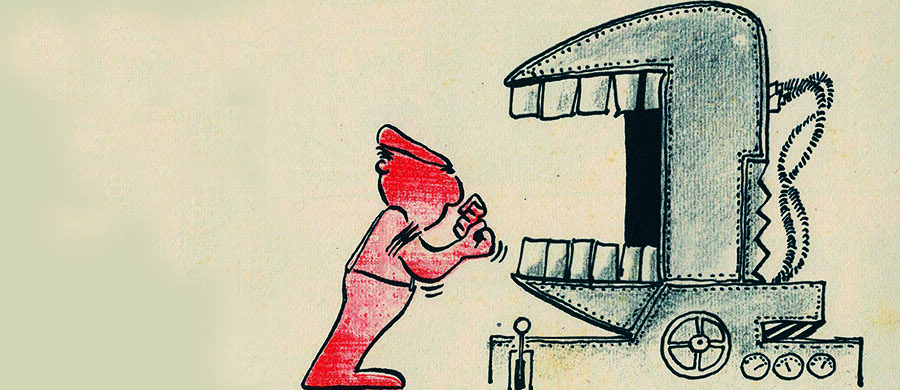The Magneti Marelli Workers Committee – The “Red Guard” Tells Its Story (Milan, 1975-78)
Emilio Mentasti
In a large factory in Milan in the mid-70s, a few dozen workers organized themselves against both the management and the unions in an autonomous Workers’ Political Committee. Soon, this “Red Guard” consisted of hundreds of workers fighting against layoffs and relocation. The Committee did not stay shut up within the walls of the factory. It participated in numerous other struggles, such as strikes and demonstrations, which were raging across the whole of Italy. Crucially, it took part in attempts to unify the movement of workers’ committees on a regional level. And it also participated in the radical struggle against inflation, where workers refused to pay ever increasing prices. This movement of autoreductionfamously inspired Dario Fo’s play Can’t Pay? Won’t Pay!
Magneti Marelli was not the only factory in Italy to create autonomous workers’ organizations, but its Committee served as a reference for all the others because of its bold initiatives and its capacity to help workers in the surrounding smaller workplaces to benefit from its experience. Its exemplary fight was a vital part of the revolutionary struggle in Italy during the hot decade 1968-1979, and one that still contains important lessons for class struggle militants today.
Bio: Emilio Mentasti is a historian who has published several books on the history and organization of the autonomous workers movement in Italy.
The Magneti Marelli Workers Committee – The “Red Guard” Tells Its Story (Milan, 1975-78) by Minor Compositions on Scribd
Ordering Information
Official release to the book trade in May 2021.
Available direct from Minor Compositions now for the special price of £10.
You can also download it here: The Magneti Marelli Workers Committee – The “Red Guard” Tells Its Story (Milan, 1975-78)
184 pages, 6 x 9
UK: £18 / US: $24
ISBN 978-1-57027-363-6

Leave a Reply